The best managers know when it’s time to increase someone’s pay. But Reddit user u/8bitmorals’s boss is far from perfect.
When they finally summoned the courage to ask for a raise (something people put in a lot of thought and agonizing before), not only did they receive a very low offer but had to justify themselves and their work, as if the results were not enough.
So u/8bitmorals resigned. After all, their “jobs pretty much run themselves.” However, as soon as the manager heard the news, they had a sudden change of mind.
Image credits: Scott Graham (not the actual photo)
Image credits: 8bitmorals
We managed to get in touch with u/8bitmorals and they agreed to have a little chat with us about what happened.
“From the beginning, I would say that the manager and I had very different ideas,” the Redditor told Bored Panda. “He didn’t go to college but was really smart. Culturally we were very different, I never really felt like I really fit in.”
“He is great at what he does, but doesn’t have a background in engineering, so we approached problems differently, while I sought solutions, he would seek money,” they explained.
At the end of the day, u/8bitmorals is happy with how they handled the situation, “there is plenty of work out there.”
It can be difficult to approach your manager for a raise even if they’re a reasonable person. But according to Diana Faison, a partner with leadership development firm Flynn Heath Holt Leadership, there’s an art to making this request, and mastering it will significantly better your chances during these discussions with your bosses.
“You want to be able to demonstrate how you add value and how you’ve made a difference to the company,” Faison told Harvard Business Review. And as in any type of negotiation, you should try to put yourself in the other person’s shoes, and design your approach accordingly.
“You have to think about why your boss should even consider granting your request,” Kathleen McGinn, professor of business administration at Harvard Business School, said. By understanding your boss’s interests and goals, and aligning those with your own case, you are more likely to get what you want.
Do:
- Prepare your case by gathering data on your unique contribution to the business;
- Consider your boss’s priorities and explain how you’ll help;
- Practice the conversation ahead of time.
Don’t:
- Wait until review time. If you’ve taken on a new role or just notched a success, approach your boss to test the waters;
- Compare yourself to a colleague. The request is about your work and your value to the company;
- Threaten to go somewhere else.
Good luck!
People were both sad and happy to hear this story
To the boss: What do YOU do 40 hours a week that leaves you unaware what I do 40 hours a week?
I think you might find it interesting that this is a textbook talk that you usually have with a person because you know exactly how much they're contributing, but they actually don't or think you don't (Dunning-Kruger syndrome) and you are trying to make them realize what needs to be done better in order to achieve one's goal, in this case the raise. Judging by the results, the talk wasn't done in the best productive way, nor at the correct moment, but the person is trying to evolve for their role. Or they've never achieved a good healthy relationship and mutual trust and respect in order to be able to build on it. Either way it's best to part ways and find a place where you feel appreciated and fit for a promotion, instead of holding a grudge and trying to click where it's not clicking and you're constantly brushing each other the wrong way.
Load More Replies...Early in my career, I was working on inside sales and also doing underwriting for an insurance brokerage. Marketing would send out mailers to bring in more business. After those went out, I would get over 100+ calls/day. Naturally our underwriting production slowed. My boss had me (and my co-worker in the same job,) write down what I was doing each 15 minutes of the day. I even wrote down, "pee" for bathroom breaks. After he saw that schedule he said nothing further but soon after, he hired another guy to take load of us.
They always gave me good salary increases and promoted me a lot. I proved myself with that schedule.
Load More Replies...To the boss: What do YOU do 40 hours a week that leaves you unaware what I do 40 hours a week?
I think you might find it interesting that this is a textbook talk that you usually have with a person because you know exactly how much they're contributing, but they actually don't or think you don't (Dunning-Kruger syndrome) and you are trying to make them realize what needs to be done better in order to achieve one's goal, in this case the raise. Judging by the results, the talk wasn't done in the best productive way, nor at the correct moment, but the person is trying to evolve for their role. Or they've never achieved a good healthy relationship and mutual trust and respect in order to be able to build on it. Either way it's best to part ways and find a place where you feel appreciated and fit for a promotion, instead of holding a grudge and trying to click where it's not clicking and you're constantly brushing each other the wrong way.
Load More Replies...Early in my career, I was working on inside sales and also doing underwriting for an insurance brokerage. Marketing would send out mailers to bring in more business. After those went out, I would get over 100+ calls/day. Naturally our underwriting production slowed. My boss had me (and my co-worker in the same job,) write down what I was doing each 15 minutes of the day. I even wrote down, "pee" for bathroom breaks. After he saw that schedule he said nothing further but soon after, he hired another guy to take load of us.
They always gave me good salary increases and promoted me a lot. I proved myself with that schedule.
Load More Replies...
 Dark Mode
Dark Mode 

 No fees, cancel anytime
No fees, cancel anytime 









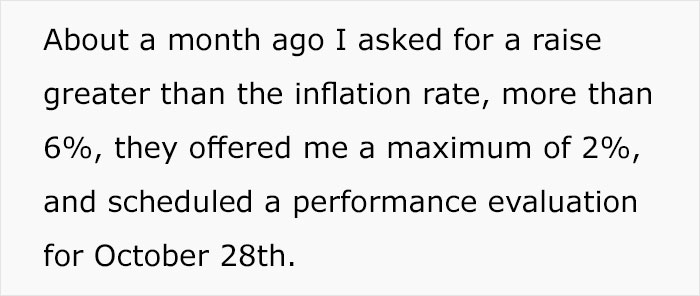
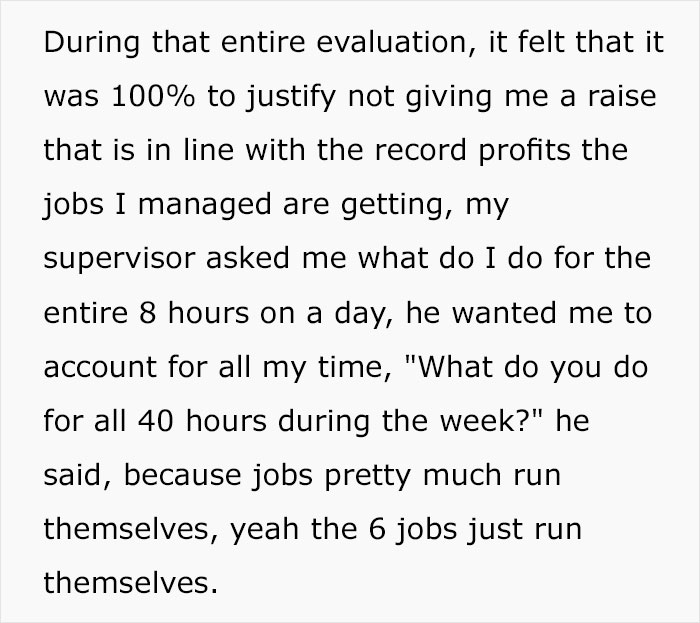

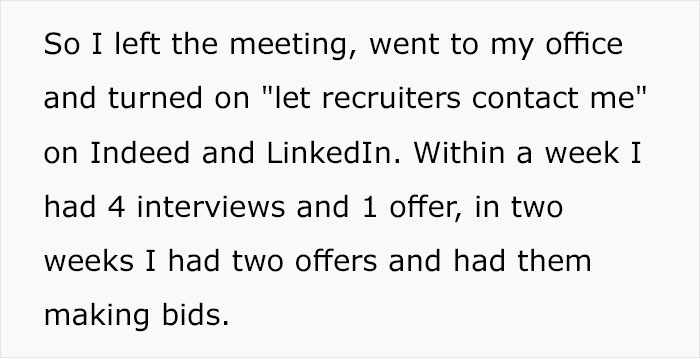
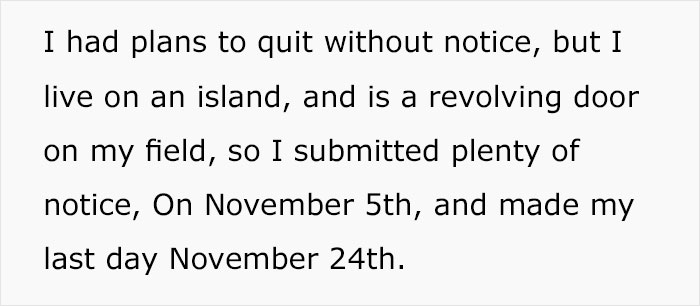

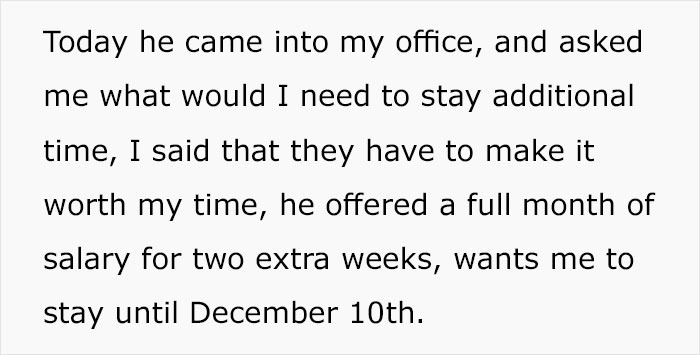
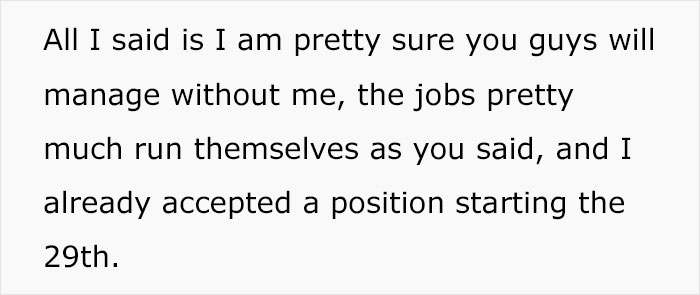
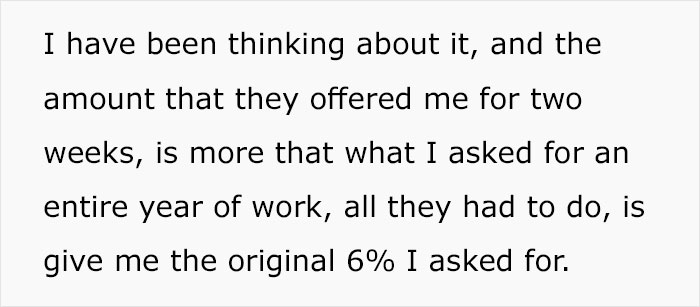






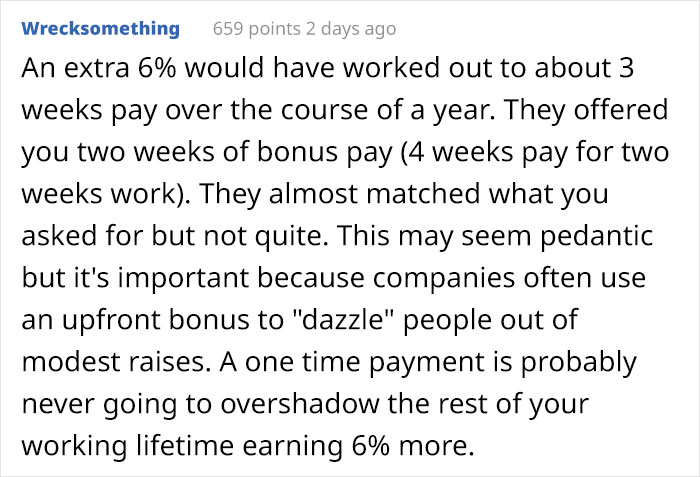















































144
24